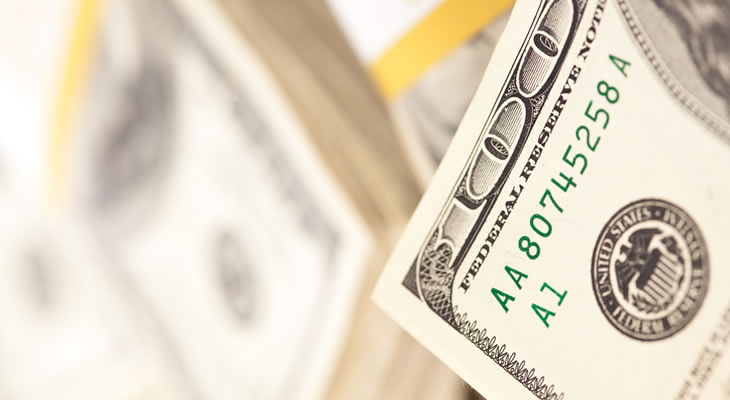The Pound US Dollar exchange rate could prove volatile in the weeks ahead as both the Bank of England (BoE) and the Federal Reserve gear up for tighter monetary policy measures.
Fed Yellen Pushes for a Rate Hike, USD Bolstered
The Federal Reserve has raised interest rates twice already this year and the outlook for a third and final US interest rate hike for 2017 has been rapidly building, with comments from Federal Reserve Chair Janet Yellen propelling rate hike predictions up to 76%.
On Tuesday Yellen argued for the need of continued, gradual rate hikes, but she also asserted that this should take place regardless of the market uncertainty that surrounds the current path of US inflation.
Yellen hawkishly stated that it ‘would be imprudent to keep monetary policy on hold until inflation is back to 2%’, acknowledging that delaying could risk leaving the labour market overheating and risk inflation issues in the future. This is, essentially, the key anxiety; that misjudgement of the labour market combined with the notable ‘lag effect’ involved in monetary policy adjustment could leave the US economy vulnerable.
Yellen stated:
‘My colleagues and I may have misjudged the strength of the labour market, the degree to which longer-run inflation expectations are consistent with our inflation objective, or even the fundamental forces driving inflation’.
These remarks follow last week’s Fed announcement that they would begin tapering their $4.2 trillion balance sheet, marking another shift towards tighter monetary policy and continuing to prompt market demand for the US Dollar to surge.
US Tax Reform Liable to Propel USD
In other good news for the US Dollar, US President Donald Trump’s latest tax reform proposal is being greeted very positively.
The tax plan is extremely ambitious, proposing extensive tax cuts for individuals and corporations as well as a simplification of personal tax brackets from 7 bands to 3 (12% 25% and 35%).
The plan also includes a surcharge for the very wealthy, something that might inspire Democrat support, the end of the estate tax and help for families in the form of increased child tax credit.
Corporations would also see their top tax rate slashed from 35% to 20%, a proposal that would provide an easier environment for small businesses and, in theory, further stimulate economic growth.
Whether this will pass through congress, however, is another question, as the Republicans only hold a narrow 52-48 seat majority.
Nonetheless, market favour for the ‘Greenback’ is likely to continue as news regarding the proposal continues to be released.
GBP USD and BoE Rate Hike Prospects
The Federal Reserve isn’t the only bank seen potentially adopting stricter monetary policy.
The BoE is regarded as moving towards a rate hike before the end of this year, with UK inflation continuing to print well above the bank’s targets.
Governor of the BoE, Mark Carney recently doubled down on hawkish language in a speech in Washington, stating that ‘some withdrawal of monetary stimulus’ could be warranted to bring inflation to heel.
He has also been accompanied by other members of the Monetary Policy Committee (MPC) in expressing hawkish sentiment, like Gertjan Vlieghe, Ian mccafferty, Michael Saunders and now, oddly enough, Andy Haldane, who claimed that a rate hike would be a ‘good news story’.
Haldane (previously a dove) stated:
‘This would be a sign of the economy healing, and therefore adjusting to that healing process. So rather than being a source of fear or trepidation, this ought to be a good news story about the economy proving resilient’.
This news positions 8 out of 9 MPC members as either hawkish or centrist, with Silvana Tenreyro being the last remaining member with outright dovish sentiment.
With both the BoE and the Fed deemed likely to raise interest rates before the year’s end, the outlook for GBP USD is likely to be increasingly volatile.
It should be noted, however, that the US has consistently repeated its plan to raise rates a third time, whilst the BoE is primarily reacting to inflation printing above forecasts. In this respect, a US rate hike seems like the more likely eventuality, though contravening data could shatter the hopes for both.


Comments are closed.